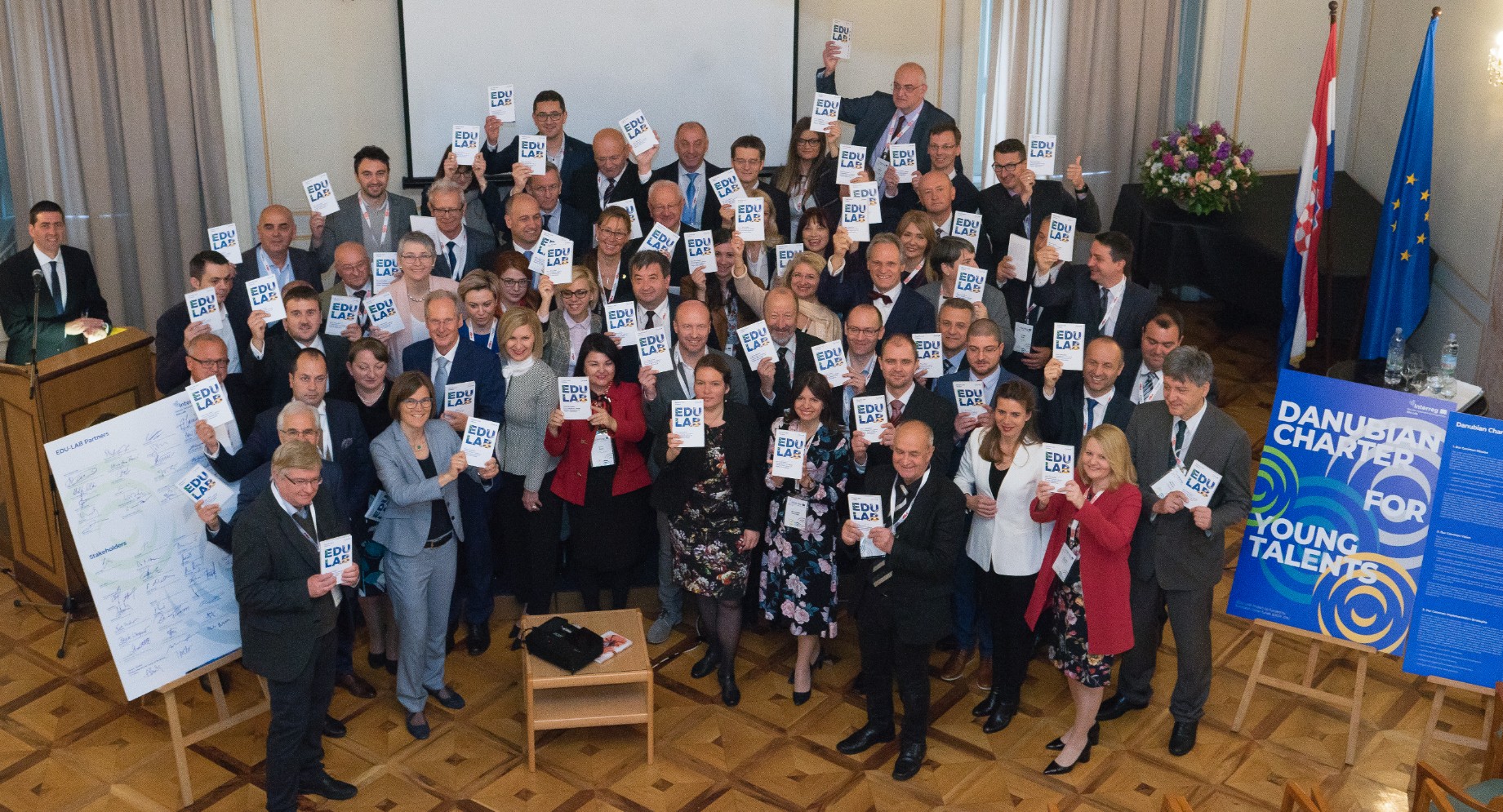EDU-LAB - EDU-LAB Final conference “Better Chances for Young People in the Danube Region”
17-05-2019
The 2-day final conference of EDU-LAB, entitled “Better Chances for Young People in the Danube Region” was opened in Zagreb on 16 May, hosted by the European Foundation for Education, Germany, and Foundation Knowledge at Work, Croatia. EDU-LAB partners, stakeholders and those interested in the project came together to celebrate the achievements of the 2,5-year project, including the development of the New Danubian Governance Model and the accreditation of the professional Bachelor`s programme in Slovakia.
“The ‘EDU-LAB New Danubian Governance in Labour market Relevance of Higher Education’ project is one of the best examples illustrating how EU Cohesion Policy concretely benefits society and citizens through European Territorial Cooperation (Interreg). I am very proud to see that this project is bringing tangible results, improving the life of people - especially youth - in the Danube region.“ - Corina Creţu, European Commissioner for Regional Policy
The conference was opened by Dr. Caroline Hornstein Tomić, Chairwoman of the Croatian host organisation Foundation Knowledge at Work, who briefly introduced the background of EDU-LAB’s mission. “Brain drain is our shared concern that asks for common solutions.” – Dr. Hornstein Tomić said. As she explained, skilled workforce migration is not a new phenomenon: already in the 1960s, labour migration from Eastern to Western Europe for better work opportunities was significant, with most of these migrants never returning to their home countries. Besides the benefits and opportunties of the free movement of people, goods and labour in the European Union, the problem of brain drain also needs to be treated, and thus the concept of EDU-LAB was developed.
Five Ministers and members of governments from three countries welcomed the audience, expressing their support for the project:
- Marko Pavić, Minister of Labour and Pension System of the Republic of Croatia,
- Prof. Dr. Branka Ramljak, State Secretary of the Ministry of Science and Education of the Republic of Croatia
- Danitsa Sacheva, Deputy Minister of the Ministry of Education and Science in Bulgaria
- Gabriela Grujic, Assistant Minister for Dual and Entrepreneurial Education at the Ministry of Education, Science and Technological Development in Serbia
- Stella Arneri, Assistant Minister at the Ministry of Regional Development and EU Funds of the Republic of Croatia
“EDU-LAB is by far the biggest project in terms of partners and one of the most ambitious ones. It is not only a perfect role model, it is a blue print for transnational cooperation.” - Johanna Specker, National Contact Point Germany of the Danube Transnational Programme stated in her speech.
Finally, Prof. Dr. Wolfgang Schuster, Chairman of the European Foundation for Education (Lead Partner of EDU-LAB) thanked all partners for cooperating “in a spirit of partnership and friendship” to achieve the four goals of EDU-LAB:
- creating better professional chances for young people,
- creating more opportunities for practice-oriented study programmes
- enhancing the competitiveness of companies
- and contributing to regional development.
Following the greetings, the signing ceremony of the Danubian Charter took place. The Charter is one of the main outputs of the projects, that formulates recommendations on enhancing the labour market relevance of higher education, in line with the European Commission´s recommendations for improving the quality of education. A representative of each partner of the EDU-LAB partnership consortium as well as stakeholders, such as representatives of ministries responsible for education and businesses signed the document.
The first day of the event, concluded with a short sightseeing and gala dinner, was attended by more than 170 participants from 10 countries across Europe, representing academia, businesses, policy makers and civil society – echoing the interdisciplinary framework of the EDU-LAB project.

See more photos in the gallery.
